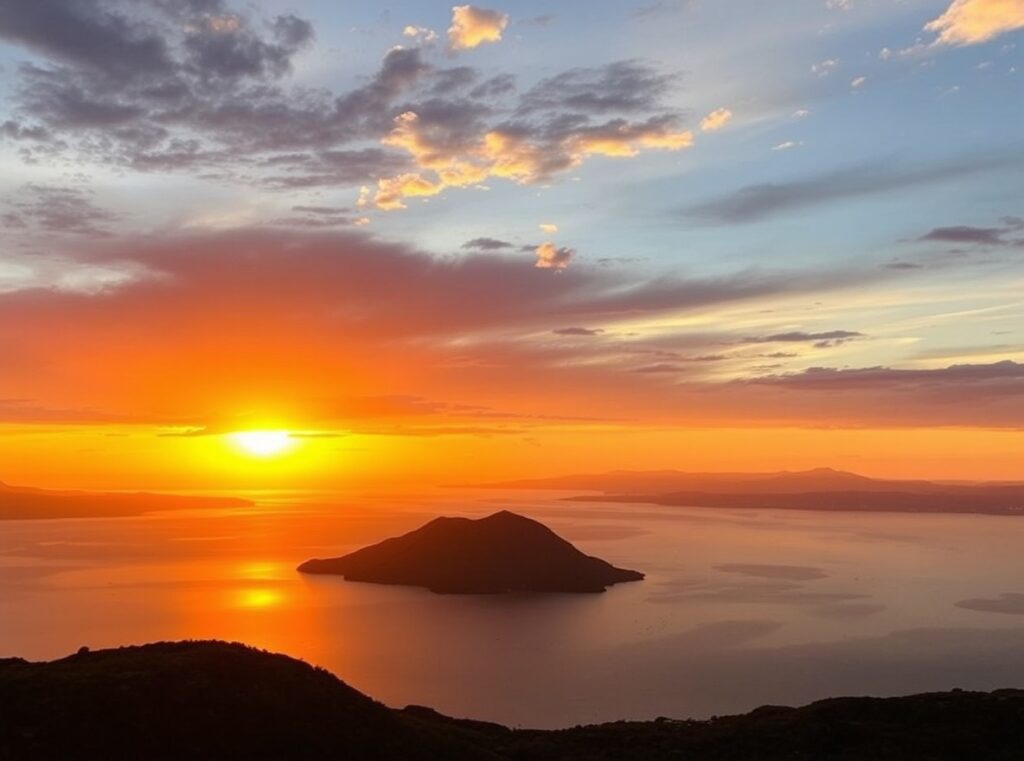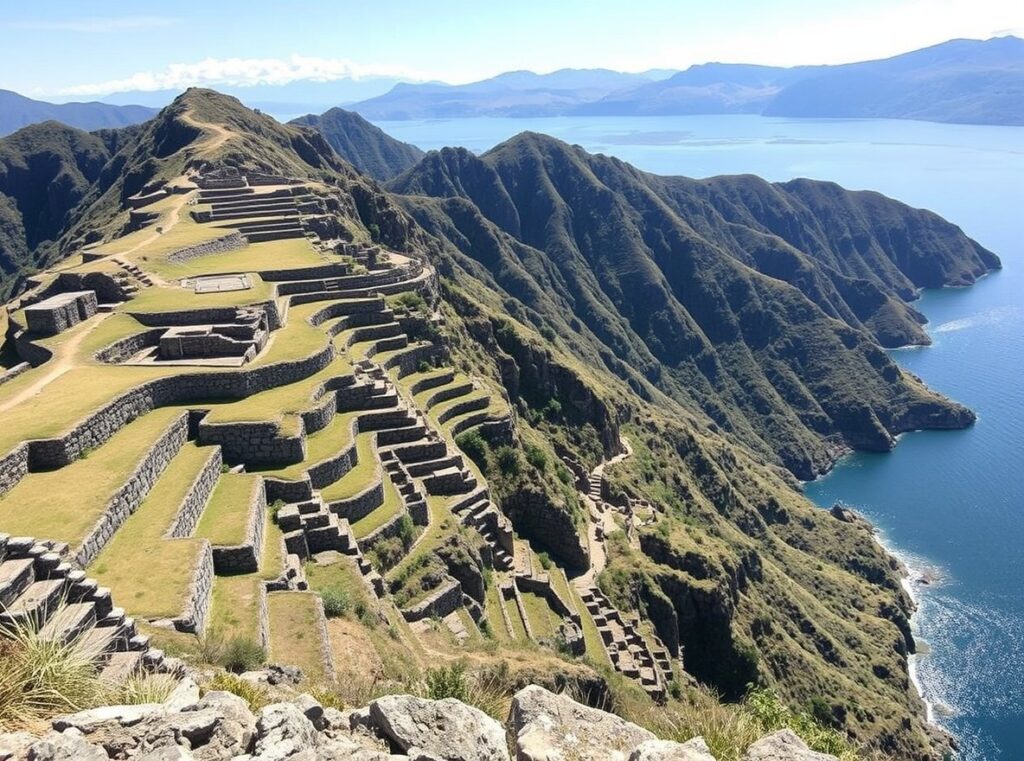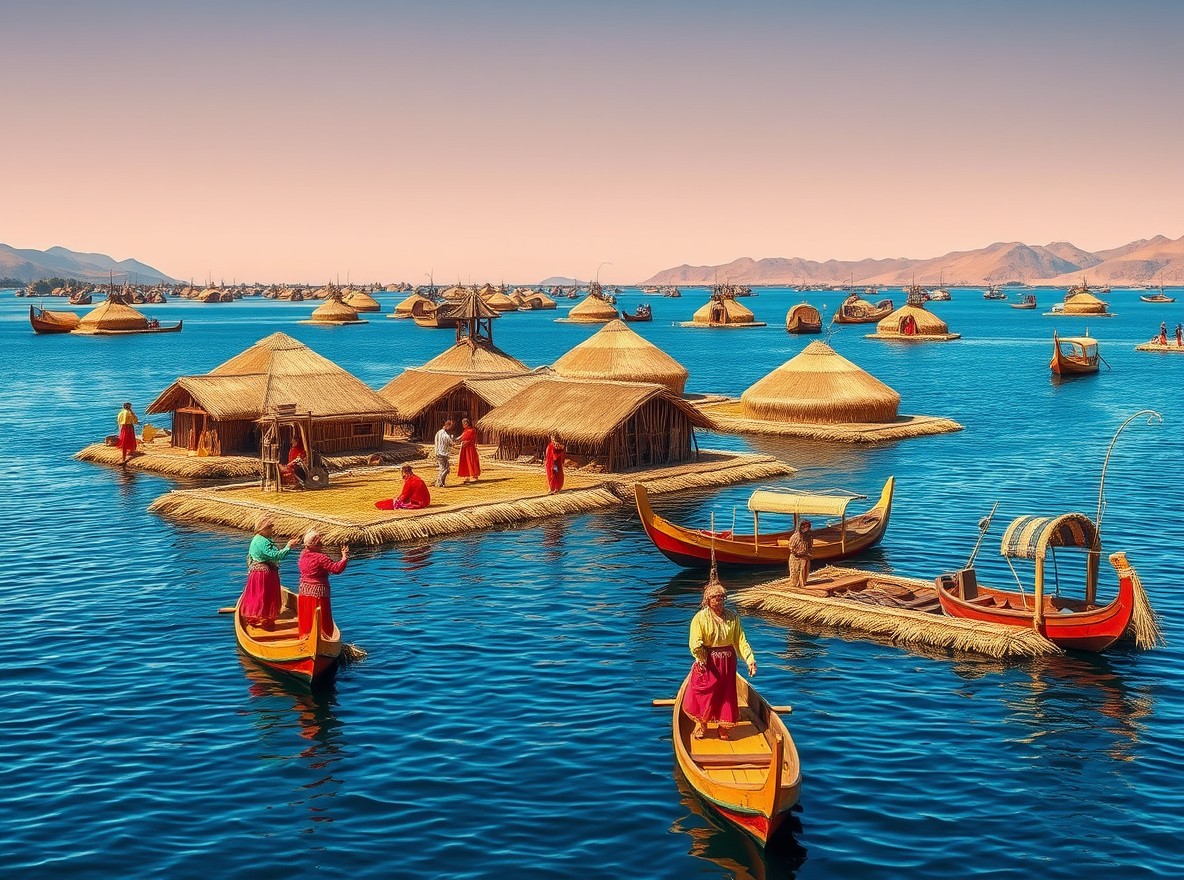Overview:
Lake Titicaca, the world’s highest navigable lake, sits at an altitude of 3,812 meters (12,507 feet) on the border between Peru and Bolivia. Known for its deep cultural significance, stunning landscapes, and the famous floating Uros Islands, the lake offers a glimpse into ancient Andean traditions. Visitors can explore Taquile and Amantani Islands, where time seems to stand still, and learn about the indigenous communities that have lived on the lake for centuries.


Quick Facts
- Country: Peru
- Region: Puno
- Elevation: 3,812 meters (12,507 feet)
- Language: Spanish, Aymara, Quechua
- Currency: Peruvian Nuevo Sol (PEN)
- Time Zone: Peru Time (UTC -5)
- Best Time to Visit: May – September (Dry Season)
Budget (in PEN and $)
| Item | Cost (PEN) | Cost ($) |
|---|---|---|
| Budget Accommodation | 40 – 100 | 10 – 27 |
| Mid-Range Accommodation | 100 – 250 | 27 – 67 |
| Luxury Accommodation | 250+ | 67+ |
| Meals (Budget) | 10 – 25 | 3 – 7 |
| Meals (Mid-Range) | 25 – 60 | 7 – 16 |
| Boat Tour to Uros Islands | 30 – 50 | 8 – 14 |
| Full-Day Tour to Taquile/Amantani | 80 – 150 | 22 – 40 |
| Local Transport (Taxi/Buses) | 5 – 30 | 1 – 8 |
Flights
The nearest airport to Lake Titicaca is Inca Manco Cápac International Airport (Juliaca Airport – JUL), located about 44 km from Puno. From Juliaca, travelers can take a bus or taxi to Puno, the main gateway to Lake Titicaca. The journey takes approximately 1 hour.
Safety
Lake Titicaca is generally safe for tourists. However, altitude sickness can be an issue for visitors not acclimated to high altitudes. It is recommended to stay in Cusco or Arequipa for a few days before heading to Puno. Additionally, be cautious of boat tour scams and book trips with reputable agencies.
Climate
- Dry Season (May – September): Sunny days, cool nights, and minimal rainfall, perfect for exploring the islands.
- Wet Season (October – April): Frequent rains, cloudy skies, and occasional storms, but the landscape becomes lush and green.

